Star Trek: The Motion Picture is quite simply one of the most important stories about what it means to grow old and keep going.
At the end of the 2023 Barbie movie, Ruth Handler shares some wisdom with her own creation. “We mothers stand still so that our daughters can look back and see how far they’ve come ,” she explains. It’s a powerful sentiment about how each generation surpasses the last. There comes a moment when we let our children go so they can figure out where the human adventure goes next. And our job is done.
I hate that whole notion.
Each successive generation does need their independence to grow and decide what happens next. But no parent stands still. Whether we like it or not, we keep changing and evolving. There may come a time when our children look back and no longer recognize us. And that’s because, no matter how long we live or how self-assured we may be in a moment, there will always be times where we do not recognize ourselves.
People usually cite Star Trek: The Wrath of Khan as the middle-age movie. However the complex, terrifying, and wondrous truths of getting to the middle are most perfectly exemplified in the oft-maligned Star Trek: The Motion Picture.
The film recently turned 45. I am about to turn 45. No now feels like a good time to reflect on what it means to change even when you don’t want to.
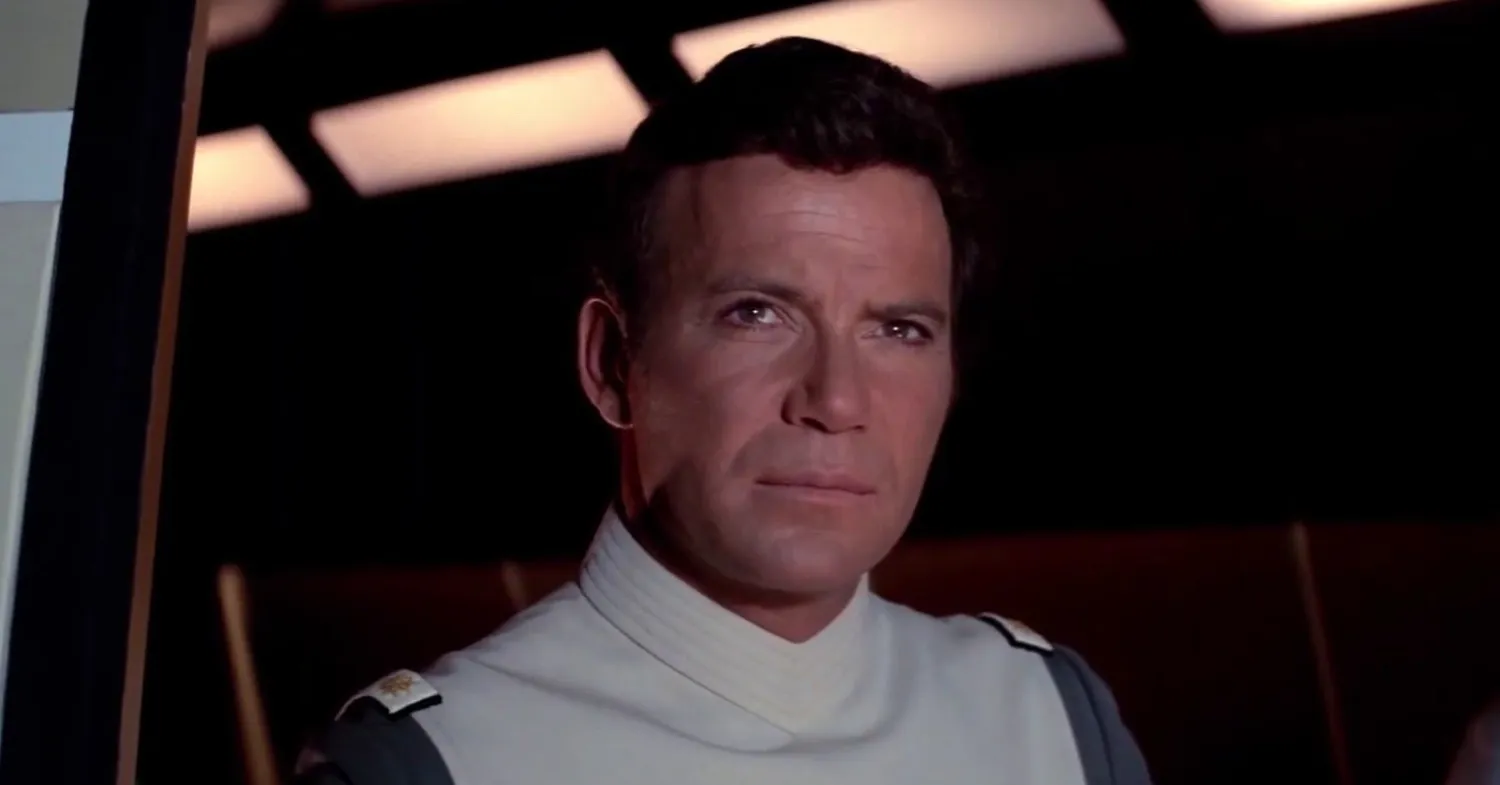
“They Gave Her Back To Me, Scotty”
In the real world it is ten years between the airing of the final Star Trek episode “Turnabout Intruder” and the debut of Star Trek: The Motion Picture. The show airs during the civil rights movement. But while it’s in syndication, a lot more happens. The Vietnam War ends. Richard Nixon resigns. There’s Roe v. Wade and the Gay Liberation Movement. Elvis Presley dies. Punk rock is born. In a year Ronald Reagan will defeat Jimmy Carter and become the 40th president of the United States.
At the crossroads of all these events Admiral James T. Kirk takes command of the USS Enterprise once more. And not unlike a lot of Americans of the time, Kirk kind of wants to go back to the way things used to be. He’s an admiral and he’s bored. The world has moved on, the Enterprise has a new captain in Will Decker. There’s no place for Kirk and his cowboy diplomacy.
Then V’ger shows up and everything changes. There’s a thing in space that seems to destroy everything in its path and the only person who really knows how to handle that is James T. Kirk. And he knows it. Kirk uses a catastrophe to steal the Enterprise from Decker. And Decker knows it, too.
But things are not the same. This is not the same Enterprise. The crew, but especially Kirk and Spock, are different, too.
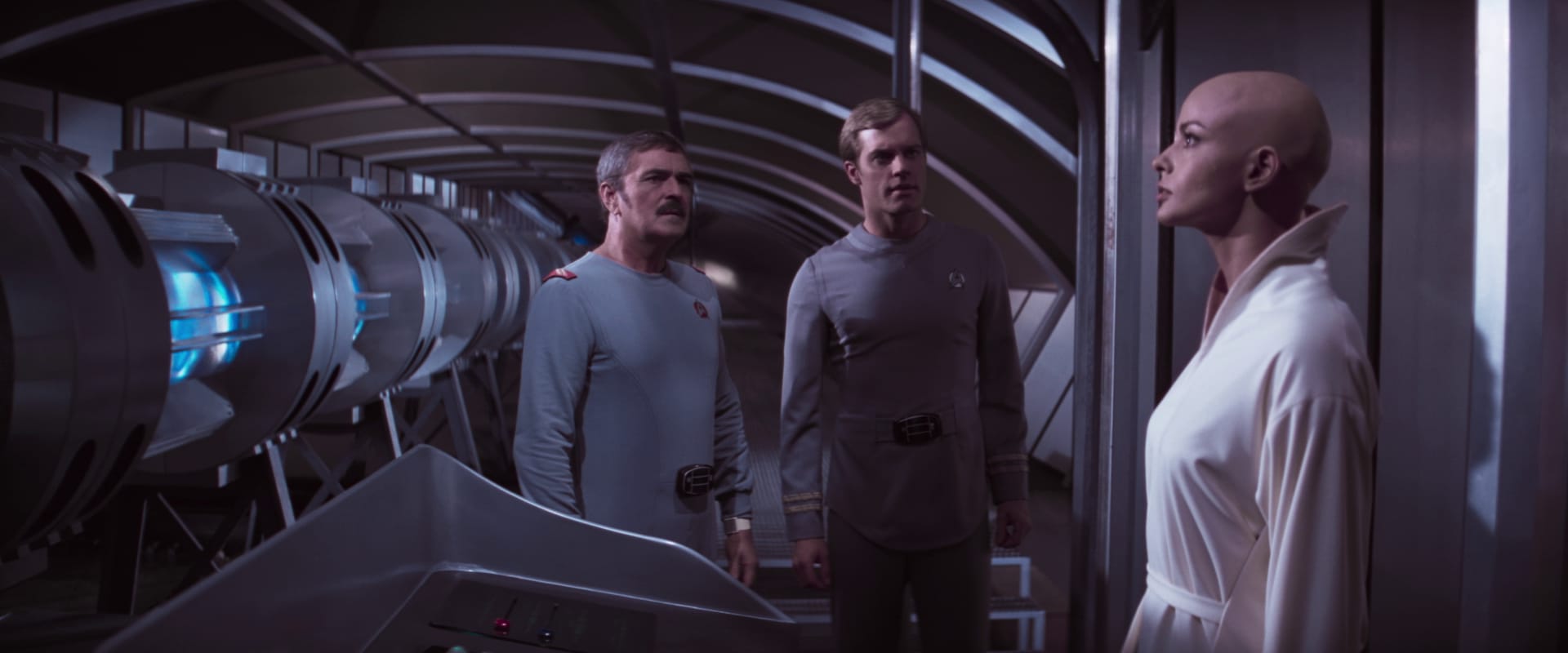
Star Trek And The Death Of Going Back
From the very start of Kirk taking control of things on the Enterprise, it’s one catastrophe after another. Two people lose their lives in the transporter. The warp drive malfunctions throwing the ship into chaos. And in the middle of that Kirk nearly makes a decision that will destroy the entire ship and everyone on it. The only saving grace is that Decker is there.
All of this happens before the Enterprise even encounters V’ger.
In addition to Decker our other major, new character is Lieutenant Ilia. There’s a storytelling beat the writers use during her introduction that make us care about Decker and Ilia quickly—they establish that the two are in love. This is fiction writing 101 but you can make people care about characters in a moment if you establish they care about each other.
But immediately after that, Ilia dies—downloaded and vaporized by V’ger. And then a probe that looks, sounds, and even thinks like Ilia shows up to speak for V’ger. The probe is a physical manifestation of grief and of one, basic principle: you can’t go backwards.
The most interesting thing about all this is that Star Trek: The Motion Picture isn’t a Kirk movie or a Decker and Ilia story. If this story has a focal character it is Spock.
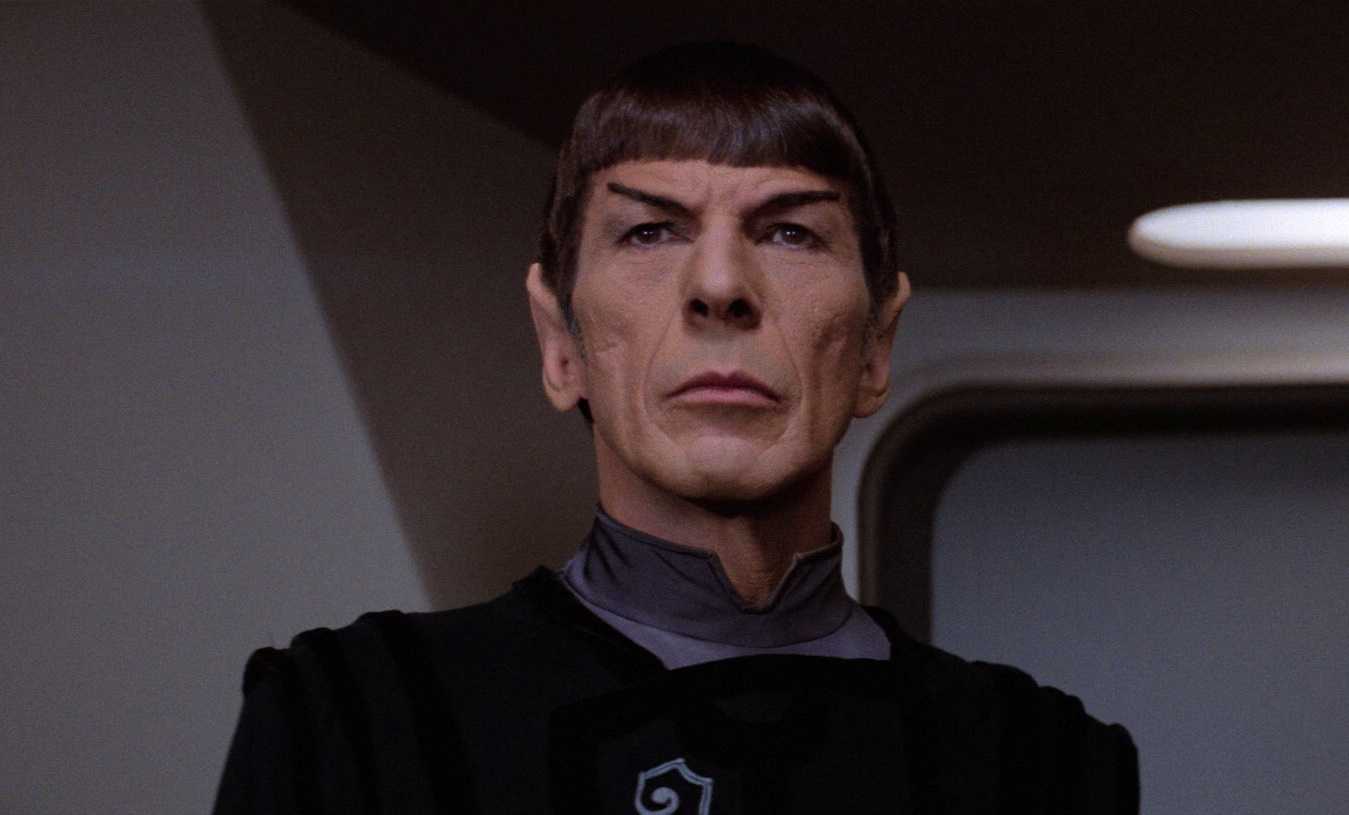
Spock, V’ger and Embracing Duality
That Kirk struggles with entering middle age is obvious. He’s not a subtle character. But Spock is struggling with the same thing, his struggle simply expresses itself differently.
Spock spends his whole life trying to be purely logical despite the fact that he is half human. When we first meet back up with Spock in TMP he is completing the Kolinahr ritual, which is just a fancy way of saying he’s purging all emotions.
Then V’ger shows up and changes everything. Again.
Spock is the only person who understands V’ger because they are on the same journey. Spock views the Kolinahr as the end. He wants to purge his emotions so his journey can be done. At long last he will be complete. V’ger wants to meet its creator. It wants to download the information in its infinite database, to purge itself, complete the mission, and be complete.
Subscribe to our newsletter!
Get Tabletop, RPG & Pop Culture news delivered directly to your inbox.
Spock and V’ger are both on a journey they think is logical, but is, in fact, emotional. Spock realizes this when he melds with V’ger and finds the artificial intellect bereft of simple feeling. And Spock laughs and weeps as he holds Kirk’s hand.
V’ger is a child. And, in a way, so is Spock. Ironic. They have both lived all this time, amassed so much knowledge, but they have barely begun. Spock says much later that logic is the beginning of wisdom. V’ger realizes this as well when it learns it doesn’t want to give to its creator, but to share and become one with them.
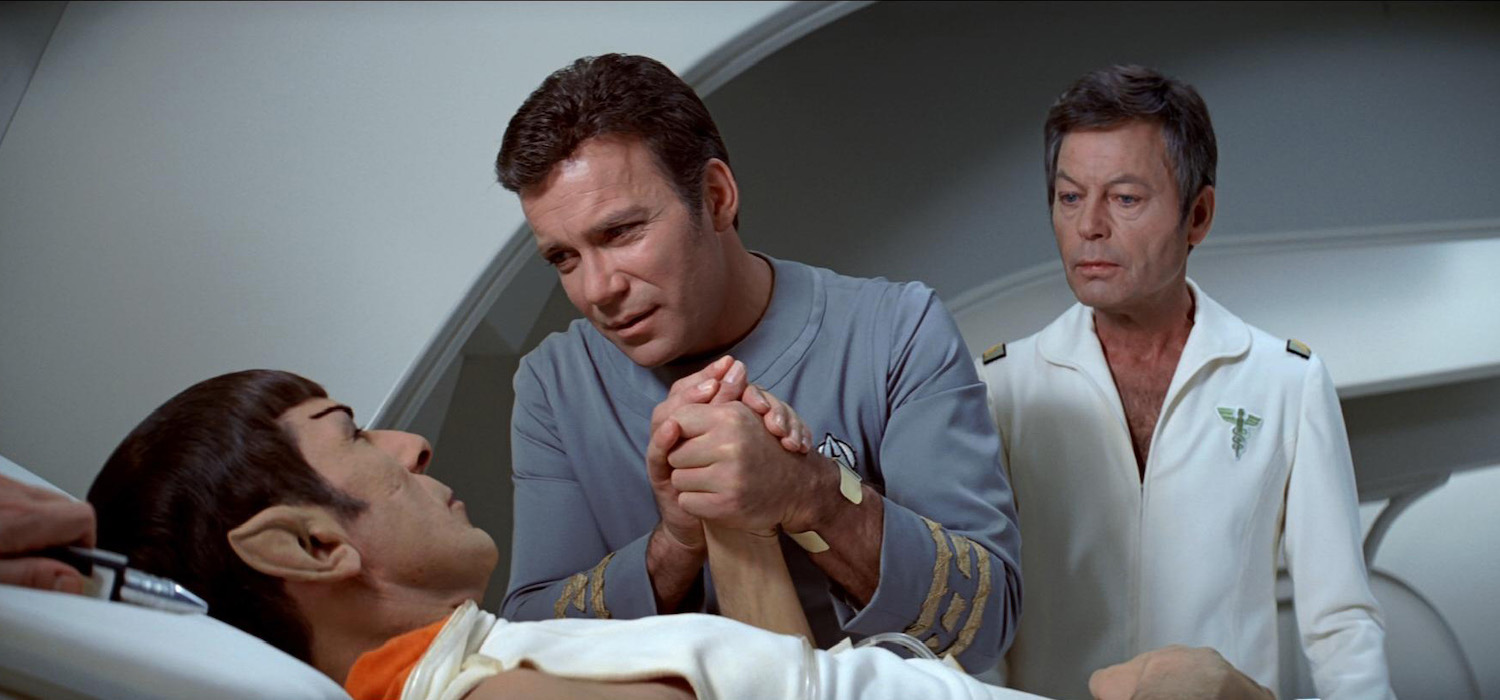
Star Trek, Middle Age, and the Beginning
Let’s indulge and talk about ourselves and not Star Trek just for a moment. When you wake for the first time and truly trace the lines on your face, when the decay inside first feels terminal, and when we feel time truly ticking there is a part in all of us that longs for it to end.
Middle age, when it first rears its head, feels like an ending. And in a way it is. It is the end of youth and all the joys and frustrations of that time. As we face the second act of our lives, like V’ger we find ourselves asking: is this all that I am? Is there nothing more?
Part of us, like Kirk, longs for a past we can no longer access. Part of us, like Spock, seeks completion. The terror of not knowing how to live beyond the potency of youth yields reckless anarchy blasted in every direction. We can be glib and call that a mid-life crisis but it just means lashing out. Hurting others. Hurting ourselves. Doing anything except looking forward.
So many people die in Star Trek: The Motion Picture. But not Kirk or Spock or V’ger. Because middle age is not death. It is merely an acceptance that things end, but that things also begin again.
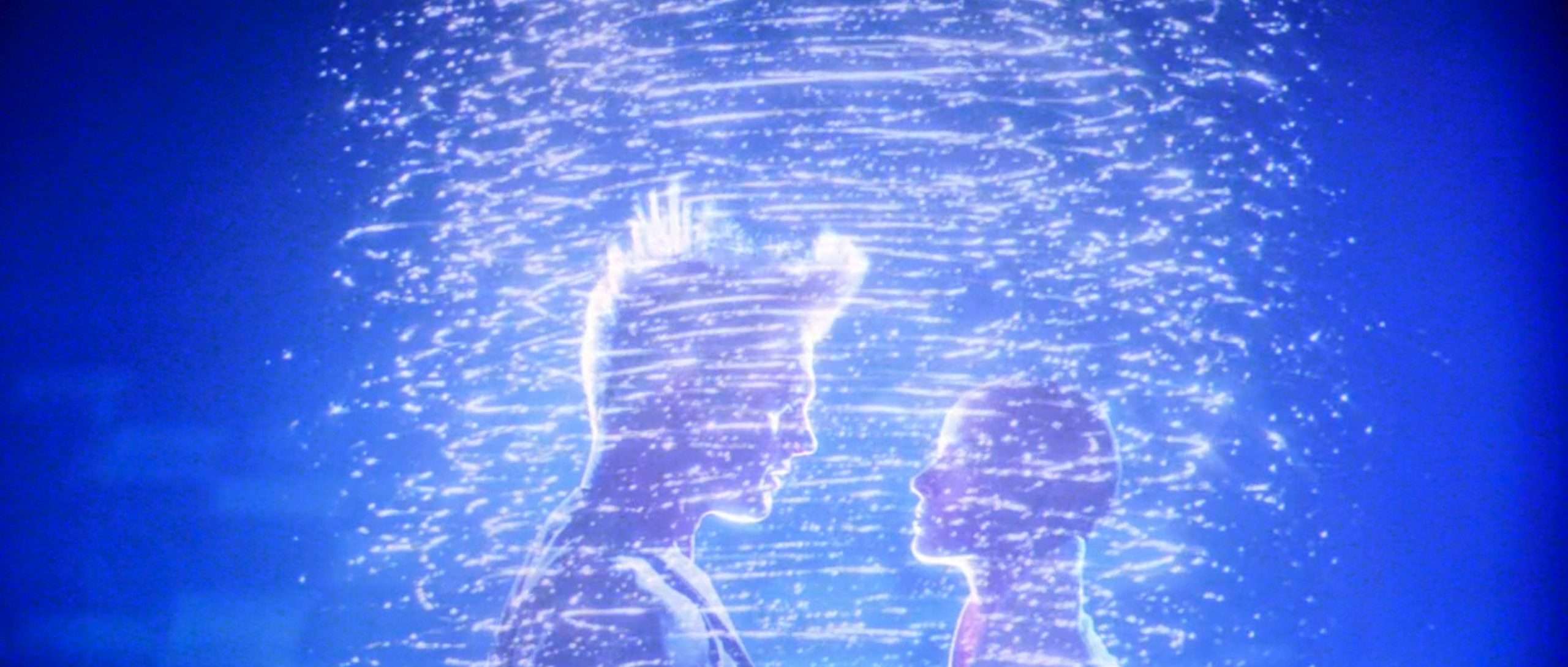
Star Trek: The Motion Picture Gets Off to a Good Middle
Star Trek: The Motion Picture ends with Decker joining with V’ger to create a new lifeform. McCoy jokes about it being a birth. “Well, it’s been a long time since I delivered a baby,” he says. “I hope we got this one off to a good start.” In a sense, Bones is right. Whatever V’ger and Decker combine to become is something new.
But V’ger is a narrative device. It is a being which reminds Kirk, Spock, and ourselves that there is more beyond our limited understanding.
Middle age is terrifying. There’s no preparing for it or preventing it. To live is to reach points where change happens. Middle age is one of the more universal examples. Our bodies and minds grow older. We can no longer operate on default. And if we try to remain static, we will become a living embodiment of that failure.
What Kirk and Spock realize in TMP is what we all must ultimately embrace: to become middle aged, to become older, is, ironically, to become something new.
The Motion Picture itself ends on one, simple statement which encapsulates all of this: “the human adventure is just beginning”. And so is yours.
Don’t Miss:
Lina is a 10+ year entertainment journalist veteran whose bylines include SYFY Wire, Looper, and Screen Fanatic. She has written comic scripts for IDW Comics and Zenescope Enetertainment and has written Doctor Who shorts for BBC Worldwide. She is a long-time podcast host and producer who has worked on Who Won the Week, SYFY’s Every Day series, and the Amazon podcast Untold Story. She currently co-hosts the New York Times recommended podcast Song vs Song.
Read more at this site
